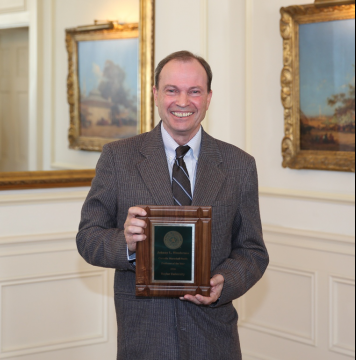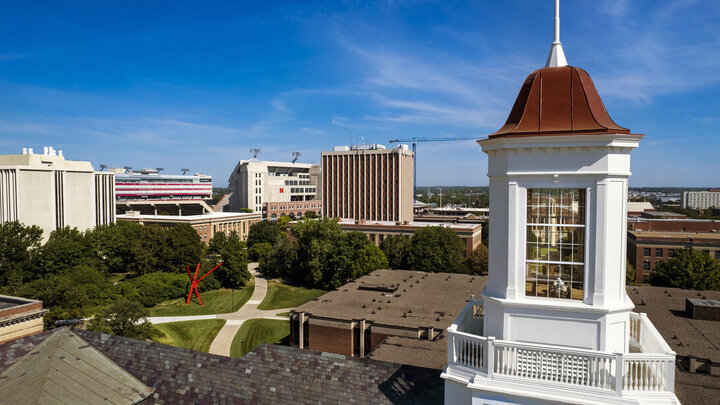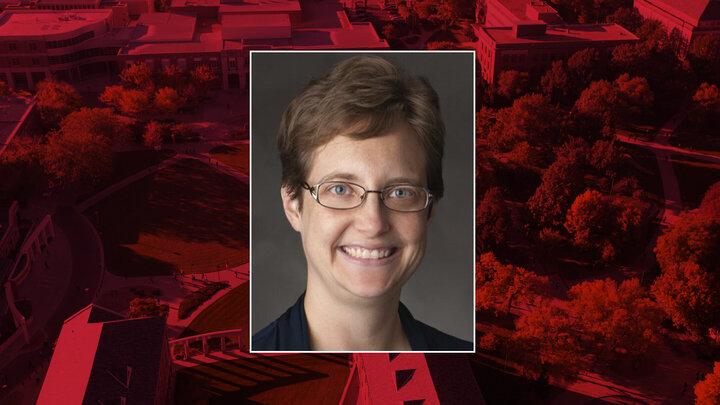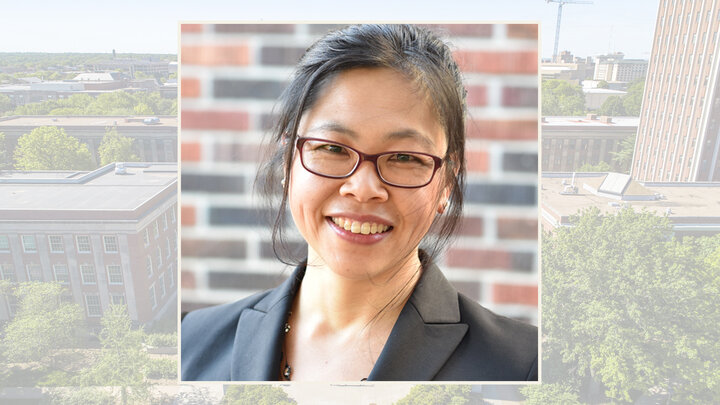Good teaching matters. Nowhere did that become more apparent to Johnny Henderson than as a doctoral student at Nebraska.
"I was exposed to exceptional teachers throughout my four years at UNL,” said Henderson, who has been a distinguished professor of mathematics at Baylor University in Waco, Texas, since 2002. “As a graduate student, good teaching and effective teaching had become as important to me as my course studies and research. I had a good feeling that UNL had adequately prepared me to begin making contributions along those avenues. My adviser, Lloyd Jackson, was not a person of many words, but every word carried weight and told the story.

"Prior to Nebraska, I think I had had many good teachers. Suddenly it seemed that I was exposed to exceptional teachers: Sylvia Wiegand – such precision in her presentations; Bill Leavitt – could almost guess the next line just before he reached it (and sometimes he used the same letter for every variable (in lower case, upper case, printed and cursive, boldface and underlined, with him carefully explaining in each step not to confuse the letter for its previous uses); Gary Meisters – photos should have been taken of his written lectures (his characters looked like letters from a typewriter); David Skoug – homey type of lectures sometimes almost like conversations with the students as he spun the tale; Allan Peterson – who never left out a detail in his seminar lectures and who by example showed me how to be the coordinator of a seminar (I to this day try to emulate the Peterson style of seminar in my own seminars).
"Ultimately, I asked Llkoyd Jackson if he would serve as my dissertation advisor to which he agreed. After a couple of semesters of participating in seminar, I suggested a possible topic for a dissertation and he agreed that there might be something to it. We did not discuss it much, and he let me toil on the simplest case for a second order problem, when I would meet with him and tell him my insight as well as my dead ends. One day, he squinted his eye through some cigar smoke and said maybe I could think 'from right to left.' That was all he said … after that, we met whenever I had something new to show (which was sometimes frequent), and then the big problem broke for me one day while sitting at a table in the park holding my paper down against a strong Nebraska wind. I waited two days, making sure that I had all details nailed down, before I shared it with Lloyd. He was quite excited and suggested that I submit some of the results in a couple of papers."
In April of 2016, Henderson was awarded the Cornelia Marschall Smith Professor of the Year Award from Baylor. The Cornelia Marschall Smith Award is presented to a faculty member who makes a superlative contribution to the learning environment at Baylor, including teaching which is judged to be of the highest order of intellectual acumen and pedagogical effectiveness, research which is recognized as outstanding by the national and/or international as well as local community of scholars, and service which is regarded as exemplary in building the character of intellectual community at Baylor.
A member of the inaugural class of Fellows of the American Mathematical Society, Henderson conducts research in the areas of boundary value problems for ordinary differential equations, finite difference equations and dynamic equations on time scales. He is a prolific scholar who has close to 500 publications in mathematical journals, putting him in the top 1 percent of scholarly productivity for all mathematicians in the world, and his work has been cited nearly 3,700 times.
Henderson said he has Jackson to thank for helping him secure offers from great universities after earning his Ph.D. from Nebraska in 1981. Before arriving at Baylor, Henderson also taught at the University of Missouri at Rolla and Auburn University, where he was promoted to full professor and was an endowed chair.
“At each university where I have served, I have received some type of recognition for teaching,” said Henderson, who has also held visiting research fellowships at Tamkang University in Taiwan, the University of Queensland and the University of New South Wales in Australia, and spent one year as a Visiting Research Scientist at Georgia Tech. “Teaching is where the hard work resides.”
Henderson, who grew up in the small farming town of Newark, Arkansas, developed a strong interest in mechanical drawing and drafting during high school. After graduation, he was admitted to the University of Arkansas, and considered majoring in engineering, but did not, due to a recession. He also considered architecture, but “that was a five-year degree curriculum – and who wanted to go to college for that long? So I enrolled as a math major, with the idea of changing majors if something else moved me.”
After completing his bachelor’s degree at Arkansas, math continued to be the only force moving his career path along. Henderson started graduate school in mathematics at Arkansas and found he not only enjoyed teaching, but also realized it can make an immediate positive impact on students’ lives. While teaching math as an instructor at a four-year college, Henderson began to consider going back to graduate school.
“I would sometimes visit the library and thumb through one of the few mathematics journals there and wonder how a person did the original research in those articles,” Henderson said. “I decided to attempt doctoral study in mathematics. I knew it would be a difficult journey, and I had no feel for its outcome.”
He applied and was offered assistantships to several graduate schools, and narrowed down his decision to Nebraska and Syracuse. A phone call from chair David Skoug increasing the stipend if Henderson agreed to teaching assignments of six hours per semester sealed the deal.
“The decision was made in taking the bitter winter winds of Nebraska over the deep snows of Syracuse,” Henderson added. Fittingly, the “big problem” for his disseration broke one day while he was sitting at a table in the park, “holding my paper down against a strong Nebraska wind.”
He and his wife, Darlene, were married soon after high school, and had a daughter, Kathy, during his sophomore year at Arkansas – “the three of us experienced much of this journey together,” he said. Darlene and Kathy both earned degrees from Auburn, and Kathy now teaches high school in the Huntsville, Alabama, area. Sadly, one of Henderson’s three grandchildren, Katie, was lost in a tornado tragedy in 2007. His Baylor faculty webpage pays tribute to her.
“There are rarely shortcuts in maintaining quality teaching and research programs,” Henderson said. “If one strives to serve their students, their department and the profession, the rewards can be exhilarating.”




